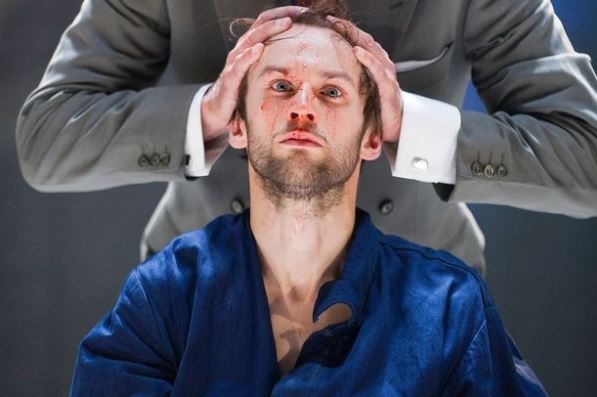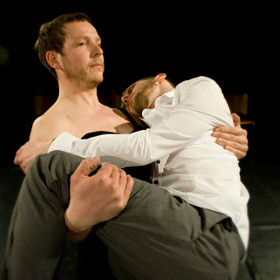Catherine Love: Can stage adaptations be too faithful?

© Headlong
Headlong’s stunning new version of 1984, currently on tour ahead of a run at the Almeida next year, does something unexpected and unprecedented with George Orwell’s iconic novel. Most adaptations focus on the more familiar aspects of the text – Big Brother, Room 101, the terrifying Thought Police. Robert Icke and Duncan Macmillan, however, base their adaptation on an unlikely and oft-neglected source: the Appendix.
In common with many readers, when I first read the novel I skimmed over the Appendix, which seemed like a fairly dry and superfluous addition tacked onto Orwell’s devastating conclusion. Luckily, Icke and Macmillan are far more astute. They have noticed, crucially, that the Appendix (which outlines the principles of 'newsspeak') is written in the past tense; it suggests a time after the world of the novel, a time after Big Brother. This becomes the key hook on which their version hangs, cleverly framing Winston Smith’s tale within a later moment in time.
Icke and Macmillan’s brilliant use of the Appendix to illuminate 1984 immediately got me thinking about how literary adaptation is typically approached. Perhaps because of a persistent reverence for the text in certain corners of British theatre, the question of fidelity is one that seems to frequently rear its head when literary classics are reconfigured for the stage. How far should an adaptation stick to the original? How much tinkering is required in order to make a literary text work theatrically? And how dramatically (no pun intended) can a production depart from the original while still claiming to be a version of that text?

While these are all valid questions, I wonder if the anxiety they summon can in many instances be unhelpful. After all, every theatrical rendering of a text, be it a novel or a script, is a sort of transformation. Often, by failing to recognise this and worrying too much about staying true to the original, literary adaptations offer dry, unimaginative or bloated theatrical experiences. I would much rather see the likes of Peter McMaster’s Wuthering Heights, which bears little resemblance to Emily Bronte’s novel but uses it as a foundation for its meditation on modern masculinity, than a slavish reproduction of something better suited to the page than the stage.
What Icke and Macmillan’s 1984 demonstrates is that sometimes, by taking a bold approach to a text, an adaptation can both translate it into a form that works theatrically and release something latent within it, offering a new perspective on a familiar narrative. Without sticking to the letter of Orwell’s novel, Headlong‘s version nevertheless enters into a fascinating dialogue with the original that is all too often absent from “faithful” adaptations.
It sounds like an instance of doublethink dreamed up by Orwell himself, but perhaps the most faithful form of adaptation involves eschewing the notion of fidelity altogether.
See Also: 20 Questions with 1984's Tim Dutton










